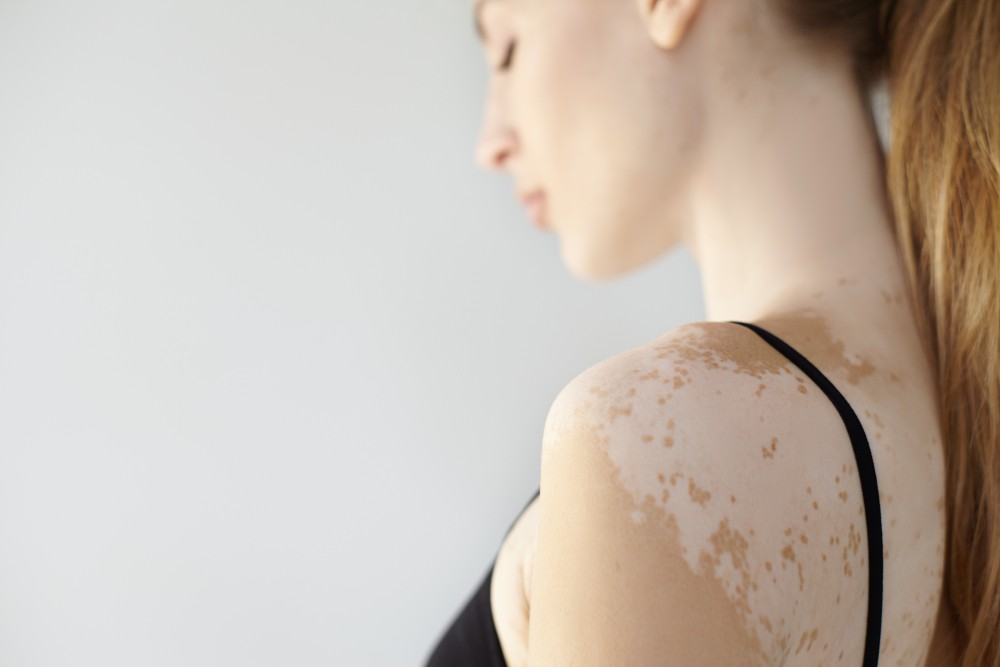Steroid topikal (kortikosteroid topikal) sering kali digunakan untuk mengurangi peradangan dan iritasi di kulit. Steroid topikal sering hadir dalam bentuk krim, gel, salep, foams maupun losion.
Umumnya krim yang mengandung steroid digunakan untuk mengobati berbagai kondisi kulit seperti eksim, psoriasis, dermatitis kontak, lichen planus dan lupus kulit. Sangat penting untuk mengikuti petunjuk penggunaan krim yang mengandung steroid untuk menghindari efek samping yang tidak diinginkan.
Cara Kerja Steroid Topikal
Steroid topikal bekerja dengan cara mengurangi peradangan, kemerahan, dan gatal pada kulit. Bahan aktifnya menghambat aktivitas sistem kekebalan lokal di kulit, serta mengurangi produksi bahan kimia yang menyebabkan peradangan seperti prostaglandin dan sitokin.
Steroid topikal membantu menstabilkan membran sel pada lapisan kulit, mengurangi kebocoran dan mencegah kerusakan pada jaringan kulit. Cara kerja ini membuat steroid topikal efektif dalam mengatasi berbagai masalah kulit yang melibatkan peradangan, seperti eksim, psoriasis, dan dermatitis.
Baca Juga: Bukan Melulu untuk Kulit, Ini Manfaat Vitamin E
Efek Samping Penggunaan Krim Steroid Topikal
Penggunaan krim dengan steroid dapat menyebabkan efek samping terutama bila dilakukan berlebihan atau tidak sesuai petunjuk pemakaian. Efek samping yang umum dialami di antaranya:
- Penipisan kulit
- Mudah memar
- Pembesarah pembuluh darah
- Pertumbuhan rambut yang tidak diinginkan terutama di area yang dioleskan krim
- Stretch mark
- Rasa terbakar dan perih di area yang dioleskan krim
Penggunaan krim yang mengandung steroid juga berpotensi menyebabkan gejala putus obat. Adapun gejala yang dialami di antaranya:
- Kulit menjadi sangat merah disertai sensasi perih dan terbakar setelah berhenti menggunakan krim dengan steroid
- Pembengkakan di area kulit yang diaplikasikan
- Kulit menjadi lebih sensitif setelah berhenti pemakaian
- Munculnya benjolan di kulit
Baca Juga: Kondisi Kulit yang Disebabkan oleh Autoimun
Mencegah Efek Samping Steroid Topikal
Untuk meminimalkan risiko efek samping dari penggunaan krim steroid, ada beberapa langkah yang bisa Anda ikuti, di antaranya:
- Selalu menggunakan krim yang mengandung steroid sesuai petunjuk dokter atau petunjuk di kemasan produk.
- Jangan menggunakan produk yang mengandung steroid lebih sering atau dalam jumlah lebih besar dari yang direkomendasikan.
- Selalu perhatikan perubahan kulit selama penggunaan krim yang mengandung steroid. Apabila muncul tanda-tanda iritasi, infeksi, atau perubahan kulit lainnya, segera hentikan pemakaian dan konsultasikan kembali dengan dokter.
- Hindari menggunakan krim yang mengandung steroid pada kulit yang terluka atau terinfeksi.
- Berikan jeda penggunaan krim yang mengandung steroid terutama untuk penggunaan jangka panjang.
Untuk menghindari efek samping yang tidak diinginkan, sebaiknya hindari menggunakan krim yang mengandung steroid sembarangan. Konsultasikan dengan dokter apabila Anda memiliki masalah peradangan dan gatal di kulit untuk mendapatkan pengobatan yang sesuai dengan kondisi Anda.
Memiliki pertanyaan lain terkait dengan krim yang mengandung steroid atau masalah kulit? Anda bisa memanfaatkan layanan konsultasi kesehatan Ai Care yang bisa diunduh di App Store atau Play Store.
Mau tahu informasi seputar penyakit lainnya? Cek di sini, ya!
- dr Nadia Opmalina
Heather L. Brannon, MD (2024). Topical Steroids: Uses, Formulations, Strengths, and Effects. Available from: https://www.verywellhealth.com/steroids-topical-steroid-strengths-1068832
Arthritis Foundation. How Safe Are Steroid Creams?. Available from: https://www.arthritis.org/diseases/more-about/how-safe-are-steroid-creams
Heather L. Brannon, MD (2023). Topical Steroid Side Effects. Available from: https://www.verywellhealth.com/steroids-topical-steroid-side-effects-1068831
NHS UK (2023). Side effects of hydrocortisone for skin. Available from: https://www.nhs.uk/medicines/hydrocortisone-for-skin/side-effects-of-hydrocortisone-for-skin/
NHS UK (2023). Topical corticosteroids. Available from: https://www.nhs.uk/conditions/topical-steroids/












